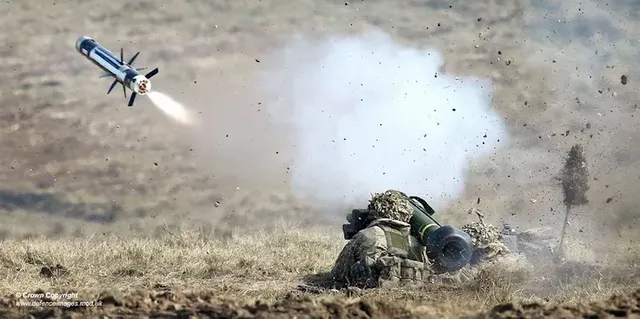Slogans aren’t bullets
Before the election was called, Keir Starmer visited BEA systems at Barrow in Furness, the dockyard that builds and maintains the UK nuclear submarine fleet. He promised that a Labour Government’s support for strategic nuclear weapons was absolute and total. Here are the FT( £ | (-))and the NWE Mail, the latter being the local news paper for the area. He said,
“My commitment to NATO and the UK’s nuclear deterrent — maintained on behalf of NATO allies — is unshakeable. Absolute. Total. The changed Labour party that I lead knows that our national security always comes first.”

This blog article looks at the defence needs of the country and suggests that focus on nuclear deterrent will still lead to a poor defence capability and that the country is not in a good position to start from.
Some right-wing commentators have suggested that this is just cynical electioneering, and the FT article links the proposal to increase spending on defence to 2.5% GDP, to recent statements of admiration by Reeves and Starmer of Margaret Thatcher. The NWE article quotes Labour’s PPC for the seat but it finishes with quotes from Greg Hands, the current Tory defence secretary, showing no matter what a Labour leader says, the Tories will never concede any rhetorical grounds on the issue of defence, despite their appalling record.
The Tory record is indeed appalling and while Labour’s front bench is busy trolling its left wing on the issue of nukes, it is ignoring the massively degraded land forces capability, the army’s recruitment crisis and the very real threats to NATO & the EU from both Russia and a possible Trump led [or even influenced] USA. The Tories record, having cut both budgets, personnel and wages, and inclinations, the endemic Russophile sentiments, make them inappropriate guides to solving these problems. Even for those who think that Margaret Thatcher was robust on defence have forgotten that one of the reasons the Argentines invaded the Falklands was due to perceived hints from the defence cuts announced by her government.
Starmer was criticised by elements of the left arguing that it was morally wrong for a Labour leader to spend more on a nuclear deterrent while refusing to consider lifting the benefit cap placed by the Tories on large families, those with more than two children. To these critics who think it is a choice, I say the problem is austerity and Reeves’s “golden fiscal rules”. i.e. it needn’t be a choice and arguing it is, just allows yourself to be painted as unpatriotic, a fool or a pacifist.
This country needs an effective defence policy, as well as being able to offer everyone a decent standard of living. An effective defence policy requires an understanding of an effective military capability; while security of supply is important, possibly critical, jobs and wages in the arms industry are not a key success indicator. Neither is the expenditure level, which simply becomes a slogan.
Despite Sweden and Finland feeling provoked into joining NATO, it is an organisation on the cusp of crisis. It was designed to defend Western Europe albeit against the Soviet Union and was and is overly reliant on US military force. Today we have to ask whether America’s will is there. Starmer’s eulogies in favour of NATO are designed to embarrass elements of the Labour left. We can see the EU’s response as it crawls towards common European defence strategies, a direction mildly echoed in Labour’s alternative European Union cooperation prospectus.
Paul Mason has been writing on his most recent blog site on the need to refactor the defence policy to increase the capability of the Army, in his article, Land: the MOD’s “burning platform”, he quotes Sir Patrick Sanders, an ex CGS, from his controversial IAVC speech in January, as saying,
“Modernisation is non-discretionary, and it is urgent — a burning platform. Its absence is felt in our recruitment numbers. The army’s size always generates headlines, but the real story is about capability and modernisation.”

Mason makes a more deeply evidenced argument in “You only need tanks if you want to win”, in which he argues that it is necessary to rebalance the military defence capability to restore the British Army’s capability, increase the wages of the Army, plug the budget shortfall for current plans, and increase British aid to Ukraine. He also, rightly in my opinion, hints that the ambition of 1½ expeditionary divisions is insufficient for today’s security threats. The budget gap has been caused by overspends on the nuclear deterrent. An axiom of defence and security policy should be that, a reduction in conventional capability makes nuclear escalation more likely, and as in the case in the Falklands, deterrent is not always the nuclear threat.
But this is not just an argument about iron and treasure, Britain’s reputation as a military nation has been deeply damaged by the isolation that Brexit has brought, and the failings of its Army in Afghanistan most obviously demonstrated by the final evacuation from Kabul and Dominic Raab’s failure to return from holiday, although the Army had been failing there for several years.
In brutal summary, if Labour wants an effective defence policy; don’t start in Barrow, you need to start in Aldershot!
Originally published at https://davelevy.info on April 15, 2024.